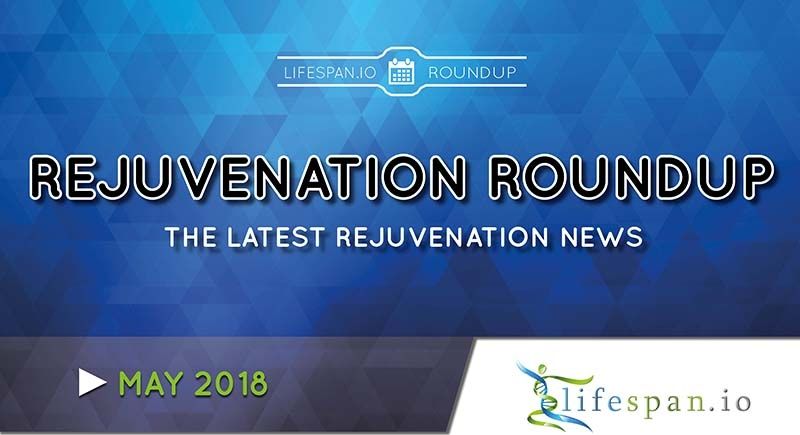http://www.blogtalkradio.com/entrepreneursempower/2018/06/03…ira-pastor



An interview with Laura Weston, medical doctor and artist, on transhumanism and rejuvenation.
The belief that science and art run on parallel tracks is largely unsubstantiated, and Dr. Laura Weston—a scientist, an artist, and a LEAF volunteer—is a great example of this. Dr. Weston is both a molecular pathologist and a painter, and she has recently launched her own art gallery. Being a passionate life extensionist and, more generally, a transhumanist, Laura undertook this project because of her belief that art can and should take part in shaping a better future for everyone; art hosted in her gallery will certainly do this in the traditional way of conveying a message but also more directly, since part of the proceeds from sales will be destined for conservation charities, medical research, and even LEAF—which we are all most grateful for.
Artists and art enthusiasts who want to make a difference for important causes, including life extension, now have their chance to do so by contributing their own art or buying their favorite works. Pieces hosted at Katrin Brunier—Laura’s nom de plume—are examples of abstract works inspired by transhumanist themes; you can admire a sample below or visit the gallery’s Instagram page.


LEAF’s monthly roundup for May is out!
Summer is coming, and, albeit on a slightly longer timeframe, so is a world free of aging! So, grab an iced drink, sit comfortably on your beach chair, and let’s have a look together at some of the latest rejuvenation news.
The first LEAF conference in NYC is coming!
May saw us announce Ending Age-Related Diseases: Investment Prospects & Advances in Research, a special one-day conference taking place on July 12th in the heart of New York City. Join us for an action-packed day of research and biotech investment talks and panels from industry leaders as we build the longevity research and investment ecosystem!

With the ability to be coaxed into different kinds of mature cell types, induced pluripotent stem cells (iPSCs) hold all kinds of potential in the world of regenerative medicine. One of the many possibilities could be repairing damaged hearts, something that will soon be put to the test for the first time ever in newly approved clinical trials in Japan.
Since emerging from the laboratory of researcher Shinya Yamanaka in Japan in 2006, the potential of iPSCs has been explored in all kinds of promising research efforts. We have seen them implanted into rabbits to restore their vision, become brain tumor predators, and turned into precursor cells for human organs.
IPSCs are created by first harvesting cells from body tissues and then infecting them with a virus, in turn introducing them to carefully selected genes that return them to their immature state. From there they can develop into any cell in the body, a capability so powerful it earned Yamanaka a Nobel Prize in 2012.
I will be 85 somewhere in the mid 2050s. It seems like a mirage, an impossible thing, but the future eventually arrives regardless of whatever you or I might think about it. We all have a vision of what it is to be 85 today, informed by our interactions with elder family members, if nothing else. People at that age are greatly impacted by aging. They falter, their minds are often slowed. They are physically weak, in need of aid. Perhaps that is why we find it hard to put ourselves into that position; it isn’t a pleasant topic to think about. Four decades out into the future may as well be a science fiction novel, a far away land, a tale told to children, for all the influence it has on our present considerations. There is no weight to it.
When I am 85, there will have been next to no senescent cells in my body for going on thirty years. I bear only a small fraction of the inflammatory burden of older people of past generations. I paid for the products of companies descended from Oisin Biotechnologies and Unity Biotechnology, every few years wiping away the accumulation of senescent cells, each new approach more effective than the last. Eventually, I took one of the permanent gene therapy options, made possible by biochemical discrimination between short-term beneficial senescence and long-term harmful senescence, and then there was little need for ongoing treatments. Artificial DNA machinery floats in every cell, a backup for the normal mechanisms of apoptosis, triggered by lingering senescence.
When I am 85, the senolytic DNA machinery will be far from the only addition to my cells. I underwent a half dozen gene therapies over the years. I picked the most useful of the many more that were available, starting once the price fell into the affordable-but-painful range, after the initial frenzy of high-cost treatments subsided into business as usual. My cholesterol transport system is enhanced to attack atherosclerotic lesions, my muscle maintenance and neurogenesis operate at levels far above what was once a normal range for my age, and my mitochondria are both enhanced in operation and well-protected against damage by additional copies of mitochondrial genes backed up elsewhere in the cell. Some of these additions were rendered moot by later advances in medicine, but they get the job done.
Earlier this month, there was a human clinical trial of the supplement MitoQ, which showed some interesting results. We thought that we would take a look at the data, and discuss the findings.
Excess reactive oxygen species production by mitochondria is a key mechanism of age-related vascular dysfunction. Our laboratory has shown that supplementation with the mitochondrial-targeted antioxidant MitoQ improves vascular endothelial function by reducing mitochondrial reactive oxygen species and ameliorates arterial stiffening in old mice, but the effects in humans are unknown. Here, we sought to translate our preclinical findings to humans and determine the safety and efficacy of MitoQ. Twenty healthy older adults (60–79 years) with impaired endothelial function (brachial artery flow–mediated dilation 6%) underwent 6 weeks of oral supplementation with MitoQ (20 mg/d) or placebo in a randomized, placebo-controlled, double-blind, crossover design study.
New video from Undoing Aging 2018: Mike West, Founder, and CEO of AgeX, presenting their work on induced tissue regeneration: Leveraging the unique regenerative potential of pluripotent stem-cell-derived therapeutics.
Accelerating rejuvenation therapies to repair the damage of aging. Berlin, March, 15 — 17.
New video from Undoing Aging 2018: John Lewis, CTO of Oisín Biotechnologies presenting their work developing very selective therapies to kill senescence cells.
Accelerating rejuvenation therapies to repair the damage of aging. Berlin, March, 15 — 17.

Research on people’s reaction to life extension is rather rare; this article discusses two such papers.
Two papers by Partridge et al [1, 2], both published in 2009, provide the somewhat rare opportunity to examine some concerns about life extension as formulated by actual people, rather than their general, more abstract forms. As highlighted in the studies, research on the public’s perception of life extension science has been very much neglected; this, in turn, has made it harder to identify the misconceptions and incorrect information fueling some common concerns about life extension and made it even harder to address those very concerns. Needless to say, the more that the public views life extension negatively, the less supportive that it will probably be, which is bad news for researchers.
The papers present the results of several interviews, conducted either in person or on the phone, aimed at understanding what ethical concerns the interviewees had about life extension and what implications they thought extended human lifespans would have for themselves and for society. The research was conducted on a sample of the Australian population only, but the issues they raised were entirely representative of a typical discussion about life extension. In both studies, the interviewees were presented with the general premise of possibly slowing down aging and the onset of age-related diseases in order to greatly extend human healthy lifespan.
We’ll be taking a look at specific claims made or sentiments expressed by different interviewees in both studies.

Who wants to lose weight, feel great, and live a long and healthy life, and what does it take to achieve these goals? Diet and exercise are equally important in long-term health, but let’s look at what recent science is telling us about the healthiest diets.
This article will rely heavily on University of Southern California professor Valter Longo’s work because I consider it to be the gold standard for nutrition research, and his recommendations in his book The Longevity Diet are well-supported with both data and good logic. Longo is the director of the Longevity Institute at USC and the IFOM Program on Longevity and Cancer in Milan.
He comes from an area of Italy known for very long lives, and part of his research focus has been looking at similar areas around the world and why those people live so much longer than normal.